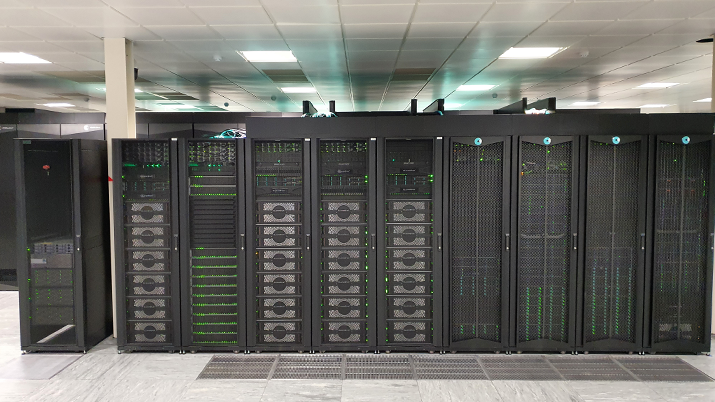Professor Mark Parsons, Director of EPCC and Dean of Research Computing at the University of Edinburgh. EPCC, part of the University of Edinburgh, is the UK’s leading centre of Supercomputing and Data Science expertise has written an article on why the Supercomputer, hosted at the University of Edinburgh is important for UK research.
As the government ramps up activity on executing its Industrial Strategy to deliver growth, prosperity and well-being to the UK, ensuring that UK research remains at the global cutting-edge of science is becoming more important than ever. Professor Mark Parsons, Director of EPCC, home to the first National Supercomputing Centre, at the University of Edinburgh, explains why the government’s decision to invest in a new supercomputer at Edinburgh is welcome news to the UK research community.
Why supercomputers matter for research and discovery
For scientists of all kinds, from drug developers to climate researchers to jet engine engineers, supercomputers are like telescopes for astronomers: they make it possible to see and understand things that would otherwise be impossible. While public and political attention has shifted to Artificial Intelligence (AI), traditional supercomputing remains a core scientific capability that cannot be replaced. Universities host these supercomputers to conduct cutting-edge research, both by themselves as well as in partnership with businesses such as Rolls-Royce or public bodies like the UK Met Office.
For many reasons, the Government’s June 2025 Spending Review was a particularly important one. At the University of Edinburgh, my organisation, EPCC, focused on announcements related to supercomputing and AI. Following the government’s announcement in summer 2024 that it might not fund a new UK supercomputer after the ARCHER2 service ends in 2026, we were concerned the UK could be left without a national supercomputer.
Why AI won’t replace the need for supercomputers
Supercomputers model extremely complex phenomena with countless variables to simulate what happens in the real world and generate new physically realistic data points. AI, when applied to such problems, can generate similar results, but it cannot model new behaviour without new physically correct data points. AI cannot replace the need for modelling and simulation. Even in the world of weather forecasting, where we’re seeing real success with AI for short-term predictions, it’s understood that AI models will need to be regularly re-parameterised using traditional physics-based simulations.
Government backing of a new supercomputer: a boost to UK research
The Chancellor of the Exchequer’s announcement of ‘up to £750 million for a new supercomputer in Edinburgh’ in the spring Spending Review was therefore very welcome. This was following a year of lobbying and in-depth discussions with the Department for Science, Innovation and Technology (DSIT), involving not only academic researchers but also industry leaders and some of the UK’s largest public sector research institutions. There is deep appreciation for DSIT’s support and advocacy in securing this vital investment.
Shortly after the £750 million investment was announced, DSIT reaffirmed its confidence in EPCC by formally recognising it as the UK’s first National Supercomputing Centre.
Planning the next national supercomputer
Detailed planning for the development of what is currently being called the ‘Next National Supercomputer’ is already underway with DSIT and UK Research and Innovation (UKRI). Many supercomputer vendors initially assumed the £750m was just for the supercomputer itself. In reality, the funding covers the supercomputer itself, the electricity to power it, the final parts of the data centre infrastructure to host it, and the staff required to operate it. That said, we have no doubt the system will be at an internationally competitive scale, ensuring the UK’s scientific and industrial research communities have access to the same or better computational resources as their peers.
Until now, all of the UK’s national supercomputer services, which have a lifetime of around 5 years, have been funded as individual investments. This has led to repeated delays when each replacement has been due. We’re looking forward to working with DSIT to help establish the planned 10-year rolling strategy in this area in order to maintain the UK’s international scientific competitiveness.
How supercomputing will benefit science, industry and everyday life
Supercomputing impacts many aspects of our daily lives: without supercomputer simulations, many of the components and technologies used in your mobile phone wouldn’t exist. The aircraft engines that take you on holiday would be much less efficient; the car you drive would be much less safe in an accident; the drugs you are given when unwell might not exist; and we wouldn’t be able to predict and understand the world around us from the atomic scale to the scale of the universe in the ways we can today.
At EPCC, we are planning for the new national service to use the next generation of processor technologies that will be available in early 2027. If all proceeds as planned, the formal launch of the service is expected to take place that summer.
